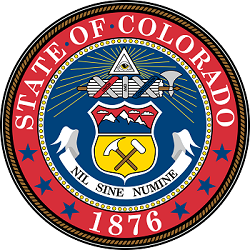
Fast, affordable Internet access for all.

Colorado has long been home to some of the most innovative municipal broadband projects in the country. That trend has only accelerated with last year’s voter-approved elimination of municipal broadband restrictions, and it’s now being buoyed by a massive new wave of state grants that should further expand affordable broadband to long-neglected parts of the state.
Colorado Gov. Jared Polis recently announced the first of multiple broadband investments using stimulus funding from the U.S. Treasury’s Capital Projects Fund (CPF) program. The CPF is funded by $10 billion made possible by the American Rescue Plan Act (ARPA), and is a key part of the state’s goal to bring affordable broadband to 99 percent of Colorado residents by 2027.
According to the Governor’s office, the state just authorized $113 million in CPF funds on 13 projects that will bring fiber service to nearly 19,000 homes and businesses across Colorado. State officials say the funding will be heavily focused on projects in the South and Southwest portion of the Centennial State, where connectivity needs are greatest.

The Colorado Broadband Office says it received 112 applications asking for more than $642 million in broadband funding across the state–five times greater than the allotted awards.
We didn't need a crystal ball, magic potion, or ESP to predict that local Colorado voters would enthusiastically reclaim telecommunications authority yesterday. Twenty-six more local governments put the issue on the ballot and citizens fervently replied, “YES! YES, WE DO!”
Colorado local communities that want to take action to improve their local connectivity are hogtied by SB 152, the state law passed in 2005. Unless they hold a referendum and ask voters if they wish to reclaim the right to do so, the law prevents local governments from providing service or partnering with the private sector. Since the big incumbents that pushed the law through aren't providing necessary connectivity, their only choice is to opt out and work with new partners or move forward on their own.
This year’s results include seven counties and 19 municipalities. Many of those communities simply don't want lobbyists in Denver dictating whether they can move ahead in the digital economy. Over the past few years, the momentum has grown and, as places like Longmont, Rio Blanco County, and Centennial prove that local authority can improve local connectivity, more local governments have put the issue on the ballot.
The Big “Yes” In 95
On November 4th, Aspen public radio news featured a story about local ballot initiatives to opt out of state law SB 152 in Aspen, Carbondale, and Garfield County. The western communities are three of 26 that have the measure on their ballots this election. El Paso County, Montezuma County, and the small town of Dolores are only a few others.
Justification
Reporter Wyatt Orme spoke with Jim English, head of IT at Colorado Mountain College (CMC) who described how, because of lack of redundancy, a single fiber-optic cut a year ago left the community isolated. "It took down all services between South Glenwood to Aspen, including 911 in Aspen. [It] got people’s attention," he said.
When English had the opportunity to ask the incumbent why they had never deployed another line for safety's sake, he was dismayed by the answer: “Well, how do we justify that to our stockholders?”
Freedom Found
CMC presented the opt out issue to voters last year, who handily supported the measure, giving the college the freedom to explore working with partners or on their own. SB 152, passed in 2005, was heavily lobbied by national incumbents and designed to prevent competition. It prevented CMC and any local government that had not opted out from tackling the problem of poor connectivity on their own with Internet infrastructure investment or seeking a private sector partner to solve the problem. To English - and to many of the local governments that have voted to opt out of the restrictive state law - choosing to opt out is a matter of local control and freedom:
[H]e thinks there’s historical precedent for local governments getting involved. "They built the interstate to move services and to move goods. And that’s sort of what the Internet really is. It’s...basically the new interstate," English said.
Listen to the entire story at Aspen Public Radio.